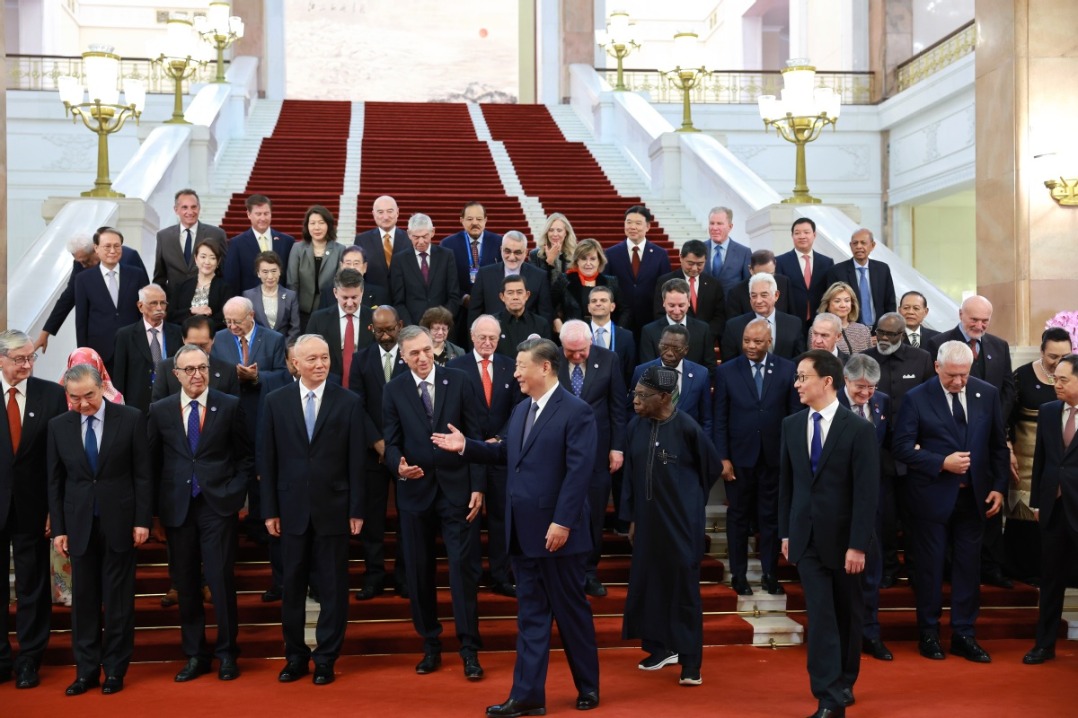Ezra Vogel a role model for China scholars


I woke up around 3 am on Monday and was saddened to read that Professor Ezra Vogel, the renowned American scholar on China and Japan, had passed away at the age of 90.
I remember his birthday well, July 11, 1930, and his Chinese zodiac sign, horse, because it was part of the fun talk at a seminar I attended on Feb 18, 2015, organized by the National Committee on US-China Relations in New York, featuring Vogel and Jerry Cohen, another well-known China scholar who is 10 days older than Vogel.
I did profile interviews of dozens of top China scholars in the United States during my posting there, and Vogel was one of the most respected among them. He was highly regarded in the US, as well as China and Japan.
It was not easy for a scholar to be liked in countries where people have contesting views. And it has not been easy for China scholars in the US to maintain the courage of their conviction and speak their mind over the past almost four years given the resurgence of McCarthyism in the country.
But Vogel was one of those scholars who did so. He was among the scholars who wrote an open letter to the US president and Congress. The letter, signed by some 100 China scholars, former officials and international relations experts, was published on The Washington Post website on July 3, 2019, titled "China is not an enemy".
In an article published in The Washington Post on July 22 this year, Vogel argued that the "US policies are pushing our friends in China toward anti-American nationalism". He also voiced concern over a possible new Cold War in a talk at New York-based China Institute on Sept 17, 2019, and hoped people would do whatever they could to prevent such a scenario. And he hoped that the new US administration would reverse the course at a time when the result of the US presidential election was not yet clear.
When Vogel criticized China, he was to the point. He advised people to not view China in a static way, citing the year 1978 when "fundamental changes" took place.
I got to chat with him for the first time on Oct 4, 2011, after a seminar on his book Deng Xiaoping and the Transformation of China, which was held at the Asia Society in New York.
Eleven days later, on the morning of Oct 15, I was at his home in Cambridge, Massachusetts, interviewing him about his career as a China scholar after he had already become an expert on Japan. It was the legendary China scholar John Fairbank who in 1961 offered him a three-year scholarship to study Chinese history and language that helped him become a respected China scholar.
Vogel believed that he had the responsibility to help increase mutual understanding between China and the US, as well as between China and Japan, the two countries he studied, loved and was loved back by the people there.
His last book, China and Japan: Facing History, published in July 2019, was for Chinese and Japanese readers, rather than their American counterparts.
I did quite a few interviews with him. For the first few times, he insisted that I send him a copy of the article before it was published to ensure that I had quoted him correctly. In one of the return emails, he wrote: "Dear Weihua, You quoted me accurately, and I liked your article. I appreciate your sending it to me. I am pleased to cooperate with journalists when they report me accurately. Ezra Vogel".
Vogel set a high bar for China scholars and experts, and he will be greatly missed.
chenweihua@chinadaily.com.cn
The author is chief of China Daily EU Bureau based in Brussels.


































